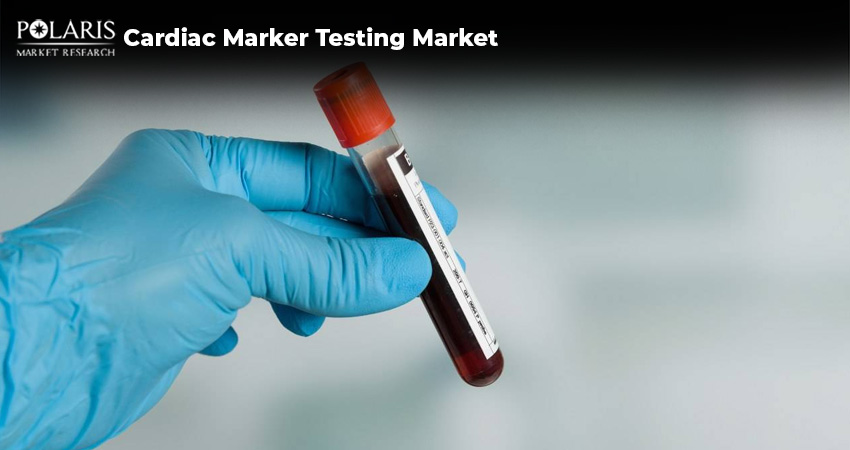Diagnosing Heart Attacks Quickly with Cardiac Marker Testing

In recent years, the field of healthcare has experienced significant growth with many superior technological developments and has achieved several milestones through extensive research. Cardiac marker testing is a critical tool in modern medicine, helping doctors diagnose and manage life-threatening heart conditions with precision. With advancements in high-sensitivity assays, cardiac marker testing has become faster and more accurate than ever, enabling timely interventions that save lives.
Whether in emergency rooms, clinics, or routine check-ups, these biomarkers play a pivotal role in cardiovascular care. In this blog, we’ll explore the key cardiac markers, their clinical significance, and how they’re revolutionizing heart disease diagnosis and management.
What Are Cardiac Markers?
Cardiac markers, also known as biomarkers, are substances released from the heart muscle into the bloodstream when it's damaged or stressed.
These biomarkers help in:
- Confirming or ruling out a heart attack (myocardial infarction).
- Assessing the severity of heart damage.
- Monitoring treatment effectiveness.
- Predicting long-term outcomes in heart disease patients.
What Is Cardiac Marker Testing?
Cardiac marker testing involves measuring specific substances, called biomarkers, in the blood to assess heart health and diagnose or evaluate conditions like heart attacks and other cardiac problems. Cardiac marker testing helps doctors determine if a person is having a heart attack, has had a heart attack, or has other heart-related problems like angina, congestive heart failure, or other conditions. The test usually includes a blood draw, in which a sample of blood is obtained and submitted to a lab for analysis.
Common Cardiac Markers and Their Roles
Troponin (cTnI and cTnT)
- Most sensitive and specific marker for heart attacks.
- High-sensitivity troponin (hs-cTn) tests can detect even minor heart damage earlier.
Creatine Kinase-MB (CK-MB)
- An enzyme found mainly in the heart muscle.
- Useful for detecting recurrent heart attacks after initial damage.
Brain Natriuretic Peptide (BNP and NT-proBNP)
- Indicates heart failure and fluid overload.
- Helps differentiate between cardiac and non-cardiac causes of shortness of breath.
- An early marker of muscle injury (rises within 1–2 hours).
- Less specific to the heart but useful in early-phase diagnosis.
C-Reactive Protein (CRP) and Homocysteine
- Used for assessing inflammation and cardiovascular risk, though not direct markers of heart attacks.
The Incredible Potential of the Market
According to Polaris Market Research, the global cardiac marker testing market was valued at USD 4,804.49 million in 2024 and is anticipated to reach a value of USD 11,771.28 million by 2034, showcasing a CAGR of 9.4% over the forecast period.
The growing prevalence of acute coronary syndrome, high technological developments in cardiac biomarkers, specificity in detecting cardiac disorders, and a rise in demand for point-of-care cardiac testing kits are among the key aspects driving the cardiac marker testing market growth. The growing popularity of these test kits, owing to the quick diagnosis and results obtained, which reduces the diagnostic time involved and expedites the overall treatment process, is anticipated to boost the market growth. Also, the rising emphasis on developing new and more updated devices and test kits among key players is projected to propel the market expansion.
How Is Cardiac Marker Testing Performed?
- Blood Sample Collection
- A simple venipuncture (blood draw) is performed.
- Serial testing (repeated over hours) improves accuracy in diagnosing heart attacks.
- Laboratory Analysis
- Automated immunoassays measure biomarker levels.
- High-sensitivity troponin tests provide results within 15–30 minutes.
- Interpretation of Results
- Elevated Troponin is indicative of potential heart muscle injury.
- High BNP/NT-proBNP is suggestive of possible heart failure.
- Rising CK-MB may indicate a reinfarction.
Emerging Trends in Cardiac Marker Testing
Advancements in Diagnostic Technologies
Recent advancements in cardiac marker testing are driving improvements in accuracy, speed, and convenience. Innovations such as high-sensitivity assays, automated analyzers, and point-of-care diagnostic devices are at the forefront of this progress. High-sensitivity assays allow for earlier and more precise detection of cardiac events, facilitating timely intervention and improved patient outcomes. Integrating smartphone-based diagnostics and other digital health tools can improve access to cardiac marker testing and promote remote monitoring.
Focus on Early and Accurate Detection
Healthcare providers are focusing on earlier and more accurate detection of heart disease, often using novel biomarkers like hs-cTn, NT-proBNP, and GDF-15, and leveraging multi-marker approaches and improved diagnostic technologies. This is driven by the need for timely intervention to prevent or manage heart disease and its complications, such as heart attacks and strokes. A major development in this area is the move away from relying on a single biomarker; instead, researchers are exploring the combined use of multiple markers to enhance diagnostic accuracy and better identify individuals at elevated risk.
Integration of AI in Healthcare
AI integration in cardiac marker testing aims to enhance the accuracy, speed, and efficiency of analyzing cardiac marker data for early diagnosis and treatment. AI algorithms can identify subtle patterns and predict cardiac events by analyzing large datasets, potentially uncovering patterns missed by humans. This can lead to earlier detection of heart conditions and personalized treatment plans.
To Wrap Up
Cardiac marker testing has transformed the way we detect and treat heart disease, offering rapid, reliable insights into a patient’s cardiovascular health. From diagnosing heart attacks to guiding long-term treatment plans, biomarkers like Troponin and BNP empower healthcare providers to make informed, life-saving decisions. As technology advances, these tests continue to improve in speed and accuracy, ensuring earlier interventions and better patient outcomes.

